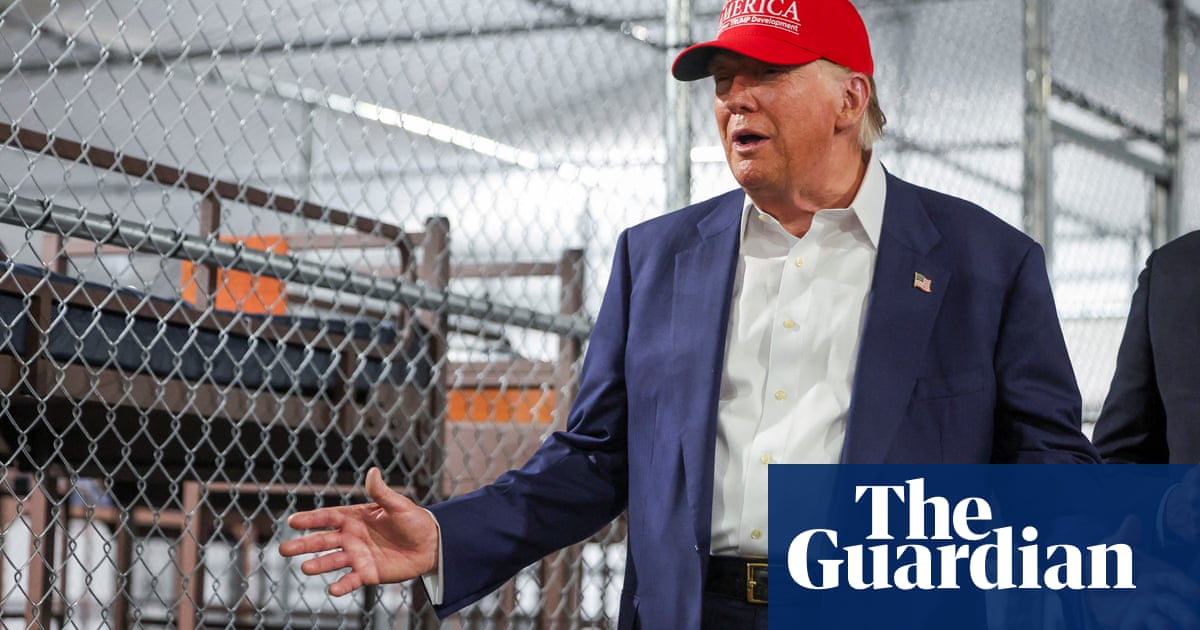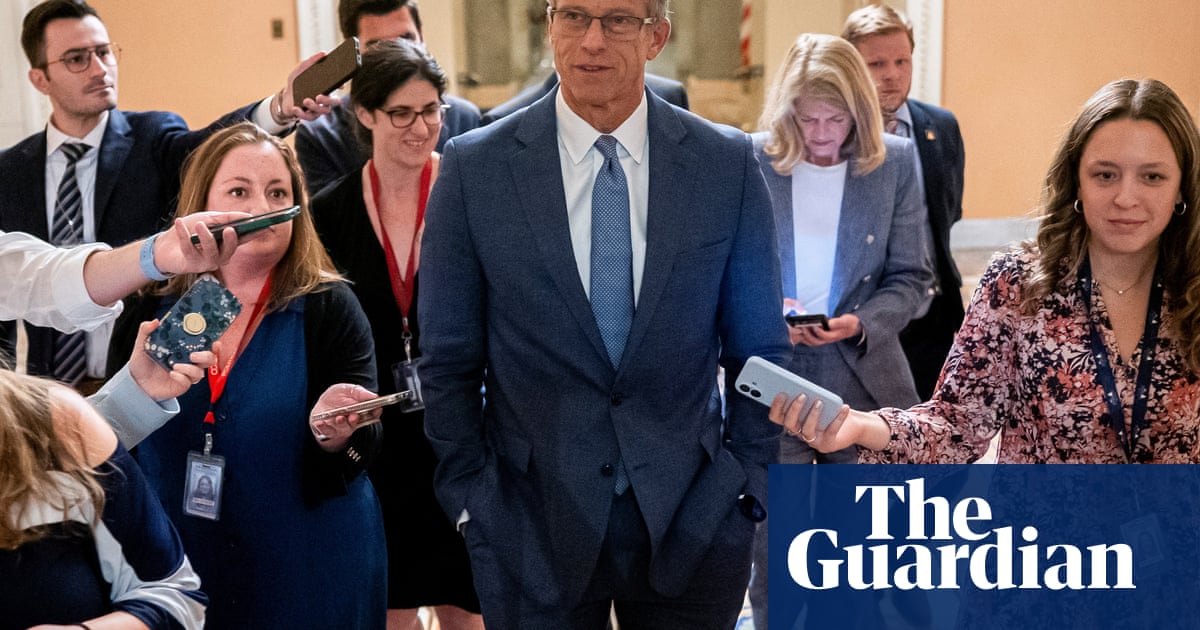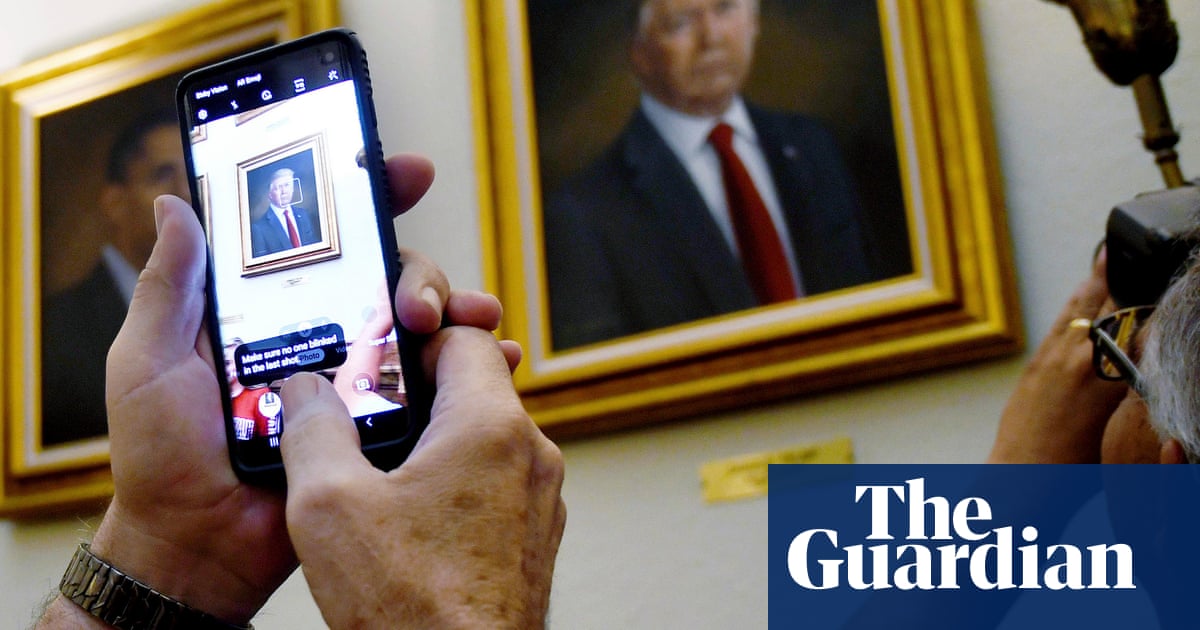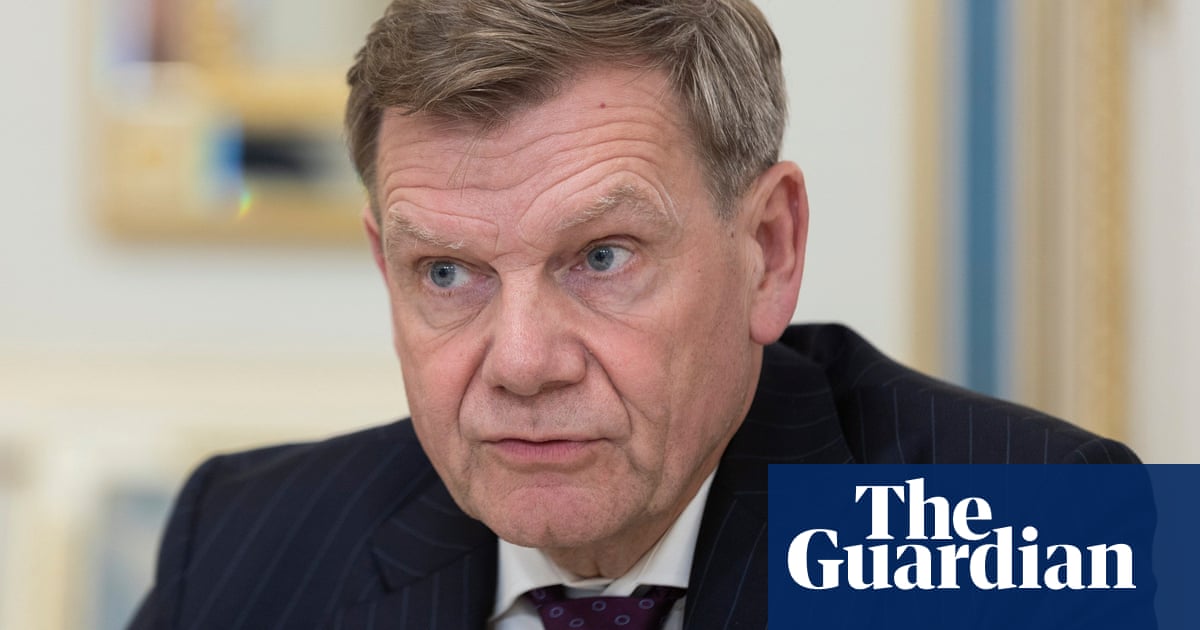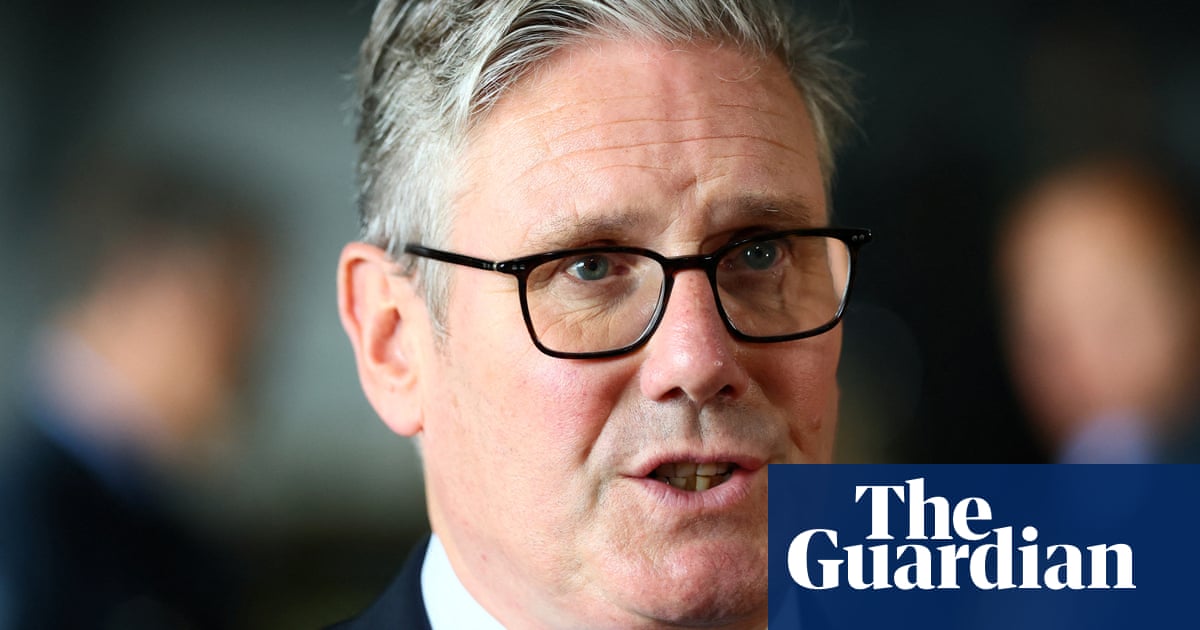Top central bankers to speak
Over in Sintra, Portugal, some of the world’s top central bankers are about to discuss monetary policy and the state of the global economy.
The central bank chiefs of the UK, the eurozone, the US, Japan and Korea are all appearing on a panel organised by the European Central Bank, at its Forum on Central Banking 2025.
The session is titled:
Adapting to change, macroeconomic shifts and policy responses.
On the panel, we have:
-
Andrew Bailey, Governor, Bank of England
-
Christine Lagarde, President, European Central Bank
-
Jerome Powell, Chair, Board of Governors of the Federal Reserve System
-
Chang Yong Rhee, Governor, Bank of Korea
-
Kazuo Ueda, Governor, Bank of Japan
Key events Show key events only Please turn on JavaScript to use this feature
Jerome Powell says he can’t say whether the Fed could cut interest rates as soon as this month.
It all depends on the data, he insists, adding that the Fed is going ‘meeting by meeting’.
Christine Lagarde declines to comment on the strength of the euro, beyond suggesting that it is a reflection on the state of the eurozone economy.
She suggests that there are two factors – the depreciation of the US dollar (which had its worst first half to a year since 1973), and an appreciation of the euro.
Looking ahead, Jerome Powell says economic data will determine whether US interest rates are cut this year (as Trump has been loudly demanding).
Powell explains that “a solid majority” of members of the rate-setting FOMC committee think it will be appropriate to reduce rates later this year (there are still four FOMC meetings scheduled].
But, Powell adds, this will depend on the incoming data, so the Fed will be monitoring the inflation data slowly, as well as the labour market.
Kazuo Ueda, governor of the Bank of Japan, resists commenting directly on Donald Trump’s threat to impose more tariffs on Japanese imports.
Ueda says the issus is being negotiated by the relevant minister, so he is “yrying to avoid making any specific comments on this.”
Trump claimed it was unfair that Japan doesn’t buy US rice (it does, though, as CNN shows here) despite having a massive rice shortage, and hinted the White House will simply sent Toyko a letter laying out the tariffs it will face.
Andrew Bailey, governor of the Bank of England, tells the ECB’s forum in Sintra that he is seeing some “softening” in the UK economy and “softening in the labour market”.
That means Bailey believes “the direction of UK interest rates continues to be downwards.”
Bailey agrees it’s too early to see the price effects from recent action on tariffs; endorsing Jerome Powell’s explanation for not having cut US interest rates this year.
Fed chair Jerome Powell blames Trump tariffs for failure to cut US interest rates this year
The top US central banker has indicated that Donald Trump’s trade war has prevented the cuts to interest rates which the president has been demanding.
Jerome Powell, who has been repeatedly criticised by Trump for the Federal Reserve’s failure to cut interest rates this year, has told an audience in Portugal that uncertainty over the impact of Trump’s tariffs prevented the Fed from cutting rates.
Powell explains that the US economy is “healthy” and in a good position, with inflation down to 2.3%, core inflation is at 2.7%, and an unemployment rate is 4.2%.
Powell explains that “if you ignore tariffs”, inflation is behaving as the Fed expected and hoped.
He says:
We haven’t seen effects much from tariffs, and we didn’t expect to by now. We’ve always said the timing, amount and persistence of the inflation would be highly uncertain and it’s certainly proved that.
We’re watching. We expect to see over the summer some higher readings, but we’re prepared to learn that it can be higher, or lower, or later or sooner than we’d expected.
Q: Would the Fed have cut more by now if it wasn’t for the tariffs?
Powell replies that “I think that’s right”, before explaining that the Fed is waiting until it knows the impact of the Trump trade war.
He explains:
In effect we went on hold when we saw the size of the tariffs.
Essentially all inflation forecasts for the United States went up materially as a consequence of the tariffs. We didn’t overreact, in fact we didn’t react at all, We’re simply taking some time.
Powell concludes by explaining that “the prudent thing to do” is to wait and see the impact of imposing tariffs on US imports, given the US economy is “in solid shape”.
Trump has repeatedly accused Powell of being ‘too late’ to cutting rates, pointing out that other major central banks have lowered rates more quickly. The Fed hasn’t cut rates since last December.
On Monday, Trump produced a hand-written note showing how US interest rates are much higher than many other countries.
Trump wrote that the Fed “should be ashamed of themselves for allowing this to happen to the United States”, and claimed they had “cost the USA a fortune” by not lowering borrowing costs.
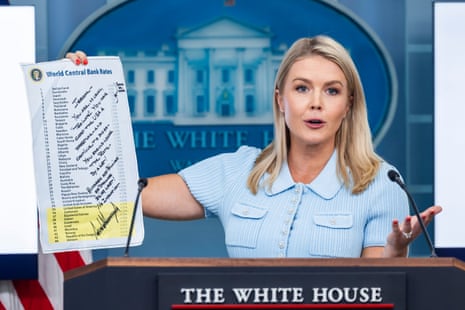
Lagarde: Not saying 'mission accomplished' after inflation hits target
The session in Sintra begins with Christine Lagarde welcoming this morning’s news that eurozone inflation rose to 2% in June, from 1.9% in May.
Lagarde reminds her audience that 2% inflation, in the medium term, is the European Central Bank’s target.
I am not saying ‘mission accomplished’, but I say ‘target reached’, OK.
The ECB president then warns that “we are facing a lot of uncertainty”, including the risks of fragmentation, and worrying geopolitical developments that are causing a ‘two-sided risk to inflation’.
We have to continue to be extremely vigilant, and remain committed to delivering on the inflation target, Lagarde says, insisting:
We are well-equipped to navigate the tormented waters that we should anticipate.
EU-US trade talks could result in four options

Lisa O'Carroll
EU member states have been advised there could be four options emanating from this week crunch talks between trade commissioner Maroš Šefčovič and US trade representative Jamieson Greer over tariffs.
One option is no deal but another more likely scenario of the three remaining is a deal in which both signs are aligned “in broad brush strokes” but centre, like the UK’s deal, on a limited number of sectors such as cars and steel.
This would leave the threat of future tariffs on other sectors open, risking new crises emerging without warning during the remainder of the Trump term.
A third option is a delay, extending talks beyond 9 July. This carries the risk of Donald Trump’s threatened 50% unilateral tariffs being imposed on all imports from the EU from 10 July.
And a fourth option is an “imbalanced deal”, the type that would favour the US, something Emmanuel Macron last week said he would not accept.
Details of the negotiations were not shared in the 45 minute briefing given by Ursula von der Leyen’s head of cabinet Bjoern Siebart and Sabine Weyand, director general of the trade commission, best known in the UK as Michel Barnier’s right hand woman during Brexit negotiations.
EU ambassadors gave also been warned that the 10% blanket tariff may remain but that if they cannot secure a reduction then they will try and extract duty free exemptions in some sectors.
A delegation headed by trade adviser Thomas Baert flew to Washington on Monday for technical talks with Šefčovič joining them tomorrow for talks with trade representative Jamieson Greer.
He is likely to return to brief member states on Thursday with a possible further of ambassadors meeting on Friday ahead of next week’s deadline.
UK outlines timeline for workers' rights package

Heather Stewart
The UK government has just published the timetable for the implementation of its big workers’ rights package, which UK employers will have to get their heads around in the coming months. Some business groups had been lobbying for a longer implementation period, but Labour is keen to press ahead.
A new Fair Work Agency, to enforce the rules, will be up and running next year, ministers said.
Some changes - such as the repeal of the Tories’ strike-busting minimum service levels legislation, will come into force as soon as the Employment Rights bill gets Royal Assent, expected to be later in the summer.
Next April (2026) will mark the end of the two-day wait for statutory sick pay, and stronger protection for whistleblowers; new regulations to set up a fair pay agreement for the social care sector will follow next October.
Another slew of changes are expected to come into force in 2027, including new rights to bereavement leave, and day one rights to unfair dismissal. Deputy prime minister Angela Rayner said:
“these landmark reforms will kick in within months, demonstrating our commitment to making work pay for millions of workers across the country and delivering real change.”
Top central bankers to speak
Over in Sintra, Portugal, some of the world’s top central bankers are about to discuss monetary policy and the state of the global economy.
The central bank chiefs of the UK, the eurozone, the US, Japan and Korea are all appearing on a panel organised by the European Central Bank, at its Forum on Central Banking 2025.
The session is titled:
Adapting to change, macroeconomic shifts and policy responses.
On the panel, we have:
-
Andrew Bailey, Governor, Bank of England
-
Christine Lagarde, President, European Central Bank
-
Jerome Powell, Chair, Board of Governors of the Federal Reserve System
-
Chang Yong Rhee, Governor, Bank of Korea
-
Kazuo Ueda, Governor, Bank of Japan
Elon Musk and Donald Trump are continuing to trade barbs.
Trump has told reporters at the White House that he would look into deporting Musk, when asked about the billionaire’s vocal criticism of Trump’s tax and spending legislation.
Trump then repeated his threat to unleash the Department of Government Efficency on Musk’s empire, saying:
“We might have to put DOGE on Elon. DOGE is the monster that might have to go back and eat Elon. Wouldn’t that be terrible?”
🚨Donald Trump says he will “take a look” at deporting Elon Musk from the US:
“We might have to put DOGE on Elon. You know what DOGE is? The monster that might have to go back and eat Elon”pic.twitter.com/XaLIWNmi6c
In response, Musk has posted enigmatically…
So tempting to escalate this. So, so tempting. But I will refrain for now.
So tempting to escalate this. So, so tempting. But I will refrain for now.
— Elon Musk (@elonmusk) July 1, 2025The row is continuing to hurt Tesla’s shares, they’re now down over 6% in pre-market trading.

 6 hours ago
4
6 hours ago
4






